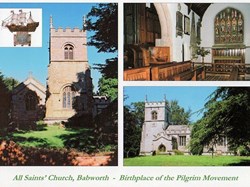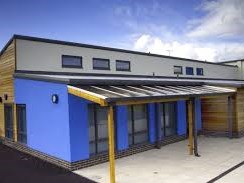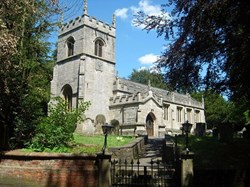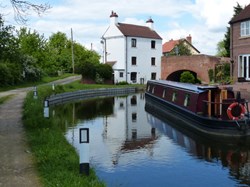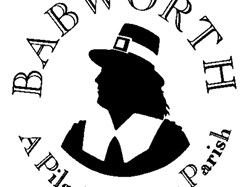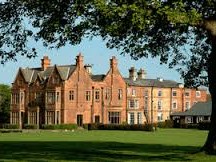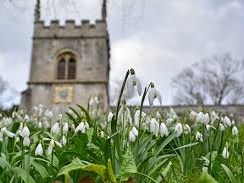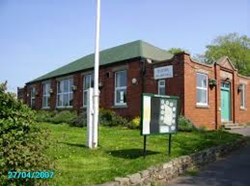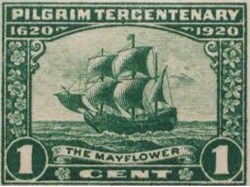Home
Please see attached above the Final version of Babworth Neighbourhood plan for your perusal.
Babworth is a village and civil parish in the Bassetlaw district of Nottinghamshire, England, about 1½ miles west ofRetford. According to the 2001 census the parish had a population of 1,329, including Ranby and rising to 1,687 at the 2011 Census.[1] In addition to the village of Babworth the parish also includes Ranby.
Babworth is well known for its connection with the Pilgrim Fathers – the early settlers of the Plymouth Colony in present-day Massachusetts, USA. Richard Clyftonwas parson here between 1586 and 1605. Two of his friends were William Brewster and William Bradford, both passengers aboard The Mayflower. The church contains many interesting items recalling the Pilgrim Fathers including the chalice used by Richard Clyfton for communion services. Bones were discovered in a vault under the north aisle at Babworth in 1951. Among them was the chalice that Clyfton had used. It is thought it may have been hidden here to save it from being stolen or melted down – possibly at the time of the English Civil War in the mid-17th century.
In the early 20th century Babworth maintained its connections with early American heritage when the Rector was Frank Wilberforce who was the great grandson ofWilliam Wilberforce who led the campaign to abolish slavery.
Babworth parish church, All Saints, is quintessentially English and is surrounded by greenery. The church is around 900 years old. It is a small structure with a tower steeple with three old bells, (to which were added three newly cast bells in the late 1950s) and a clock, a nave, chancel and a porch. Most of the building dates from the 15th century, with several 18th century memorials and 19th century stained glass by Charles Eamer Kempe. The chancel and sanctuary contain furniture byRobert (Mousey) Thompson, featuring his trademark mouse carvings. In early spring the church is surrounded by a spectacular display of snowdrops, which the public is free to visit.
The History of Retford in The County of Nottingham by John Shadrach Piercy, 1828) Piercy describes Babworth in the early 19th century as follows:
"The parish, which contains the hamlets of Great, and Little Morton, Morton Grange, and Ranby, contains nearly 6000 acres, of excellent forest land, mostly inclosed. The whole of the land in Babworth is the property of the Hon. J. B. Simpson, which he has in his own occupation, and upon which he has erected a steward’s house, and farming buildings, upon a large scale. Babworth Hall, the seat of the Hon. John Bridgeman Simpson, (brother to the late Earl of Bradford,) is pleasantly situated on an eminence, a short distance from the Retford and Worksop road, about a mile and a quarter from the former place. Its vicinity contains some of the finest scenery in this part of the county, for which, it is, in a great measure, indebted to its present possessor, who, has lately increased the beauty and interest of the place by a fine piece of water, a swiss cottage, &c. Near the church, is the charming little sequestered residence of the Rev. Archdeacon Eyre, the rector, in which, comfort and elegance are blended; and to whose worthy possessor, added to the kind patronage of the Simpson’s family, the parish is much indebted for its internal prosperity."
PARISH COUNCILLOR VACANCIES
Applications are warmly invited to fill three vacant councillor positions that have arisen on the Parish Council.
Are you interested in being actively involved in local Planning matters and the Built Environment, the Natural Environment, Communications, Roads and Transport? Basically, everything that impacts our local community.
The role of a Parish Councillor is to represent the interests of the whole community whilst taking an active role in the decision-making process.
Applications should be made in writing to Anna Lilley, Parish Clerk by email to Babworthpc@hotmail.co.uk
Please provide a short overview in support of your application, such as the experience and knowledge that you can bring to the role, by 5pm Friday 14 March 2024.
The Parish Council will consider all applications at its meeting on Tuesday 18th March. Applicants will have the opportunity to give a short introduction about themselves if they wish to.
Babworth Parish Council meetings are currently held at 7.30pm on the third Tuesday of every other month.
The Small Print
Applicants must be at least 18 years old, and a British citizen, or an eligible Commonwealth or EU citizen. Applicants must also meet at least one of the following four qualifications:
1) be registered on the electoral roll.
2) have occupied, as owner or tenant, land, or other premises in the parish during the whole of the past 12 months.
3) the main or only place of work during the past 12 months has been in the parish.
4) have lived in the parish or within three miles of it during the whole of the past 12 months
